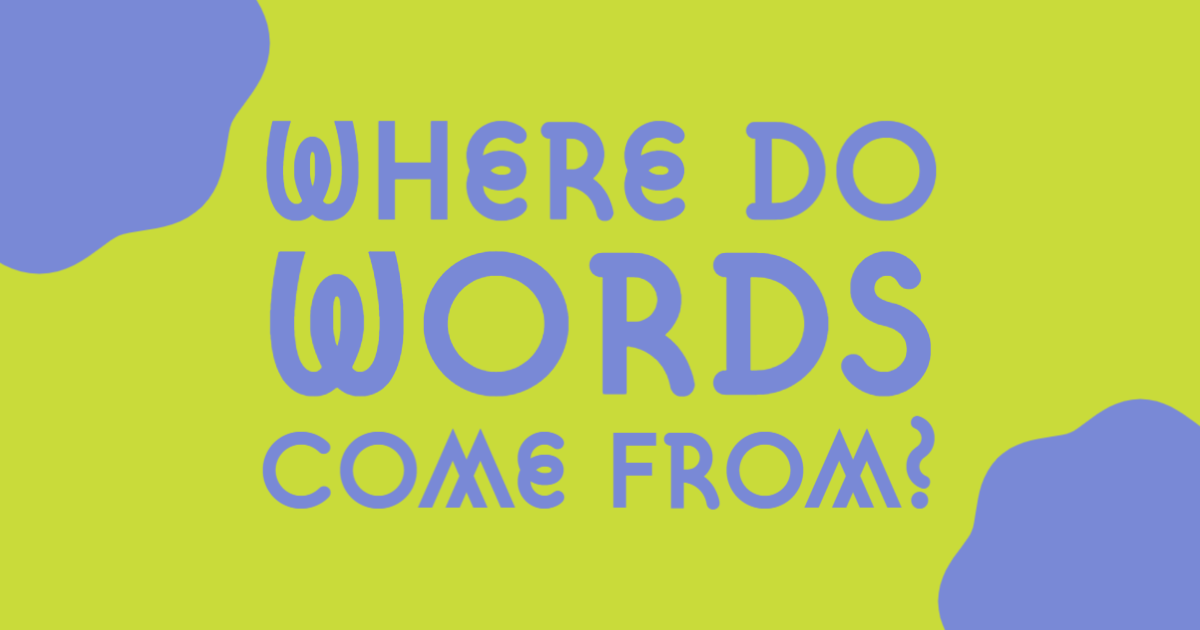|
“That word is made up!”
“All words are made up!” It’s true—all words are made up, and most of them can be tracked back to their origin. This is a particularly interesting practice in English, which has words originating from German, Latin, French, Norse, and beyond. But how can you find out where words originated? And what can you do with that information? What is etymology?
According to Webster’s Dictionary, etymology is “the history of a linguistic form (such as a word) shown by tracing its development since its earliest recorded occurrence in the language where it is found, by tracing its transmission from one language to another, by analyzing it into its component parts, by identifying its cognates in other languages, or by tracing it and its cognates to a common ancestral form in an ancestral language.”
Basically, etymology looks at where a word (or its ancestor) started and how it got to how we use it today. Understanding the etymology of words can reveal surprising connections between words that you thought were unrelated. For example, a bar where you buy drinks and the legal bar exam are actually quite connected, etymologically speaking. “Etymology” is the study of the history of words. “An etymology” also describes the history of one word in particular. For example, while studying etymology, you might run across a surprising etymology. Hope that makes sense! What’s the value in etymology?
I don’t know, trivia? Knowledge? A deeper understanding of your language? While there might not be a ton of practical use for etymology to the average person, it can be fun and even edifying to investigate the history of the words you use. Even editors and writers may not be able to find real-world application for understanding words’ etymologies, and yet etymologies can often reveal why words are spelled certain ways, why they sound reminiscent of other words, and more.
What’s the value in etymology?
I don’t know, trivia? Knowledge? A deeper understanding of your language? While there might not be a ton of practical use for etymology to the average person, it can be fun and even edifying to investigate the history of the words you use. Even editors and writers may not be able to find real-world application for understanding words’ etymologies, and yet etymologies can often reveal why words are spelled certain ways, why they sound reminiscent of other words, and more.
How can I find a word’s etymology?
While etymology dictionaries exist in print, your best bet will be to explore etymology online. Why? Words and their meanings change often, and print dictionaries and etymology dictionaries expire rapidly. So, it’s a good idea to seek your etymologies online.
Here’s Wildling’s preferred etymology resource:
If you’re not seeking the current etymology of one specific word and just want to understand the concept of etymologies more, read Etymologicon by Mark Forsyth.
written by Christina Kann
0 Comments
Leave a Reply. |
How Do I Book?We'll try to find the answer to that question in our blog. Archives
August 2023
Categories
All
|



 RSS Feed
RSS Feed